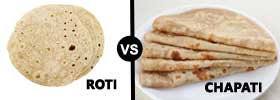Difference between Protein and Vitamin
Key Difference: Proteins are the primary building blocks for one’s body’s tissues. The plant or animal tissue that is rich in such molecules is considered as a food source, supplying essential amino acids to the body. Vitamins are organic compounds and are mainly obtained from plants and animals.
 Vitamins and proteins play a very significant role for a healthy body. However, they differ in their chemical composition and nutritional requirements.
Vitamins and proteins play a very significant role for a healthy body. However, they differ in their chemical composition and nutritional requirements.
Proteins are the primary building blocks for one’s body’s tissues. They are polymers of amino acid. There are hundreds and thousands of different proteins that are all made up of different combinations of amino acids. In proteins, there are only twenty different amino acids that are important for humans. These are combined together in various combinations to form proteins for the body. Amino acids are found in foods, and are mainly found in animal products, such as meat, legumes, nuts, seeds, fish; other vegetables have some protein too. The different amounts of fat and or carbohydrate are contained by each source of protein.
 Dictionary.com defines vitamins as “any of a group of organic substances essential in small quantities to normal metabolism, found in minute amounts in natural foodstuffs or sometimes produced synthetically: deficiencies of vitamins produce specific disorders.”
Dictionary.com defines vitamins as “any of a group of organic substances essential in small quantities to normal metabolism, found in minute amounts in natural foodstuffs or sometimes produced synthetically: deficiencies of vitamins produce specific disorders.”
Vitamins are organic compounds and are mainly obtained from plants and animals. It is true that vitamins are easily destroyed while cooking due to heat or chemical agents. Therefore, one must take care while preparing food or storing it in fridge or deep freezer. Most vitamins facilitate processes inside one’s body. They aid in the absorption, digestion and metabolism of other nutrients.
Comparison between Protein and Vitamin:
|
|
Protein |
Vitamin |
|
Description |
The plant or animal tissue that is rich in such molecules is considered as a food source, supplying essential amino acids to the body. |
Vitamins are organic compounds and are mainly obtained from plants and animals. |
|
Essential |
Growth, development, structure and function of cells, tissues, antibodies, enzymes and nucleic acids. |
Nutrients that regulate metabolic functions throughout your body. |
|
Types |
|
Water-soluble vitamins –
Fat-soluble vitamins – Vitamins A, D, E and K
|
|
Functions |
|
|
Image Courtesy: blog.wellwisdom.com, youtube.com









Comments
Vegetarian
Thu, 03/09/2017 - 21:19
Casquette Baseball
Mon, 12/26/2016 - 00:02
Nicely
RahulRawal
Sun, 10/05/2014 - 15:40
Add new comment